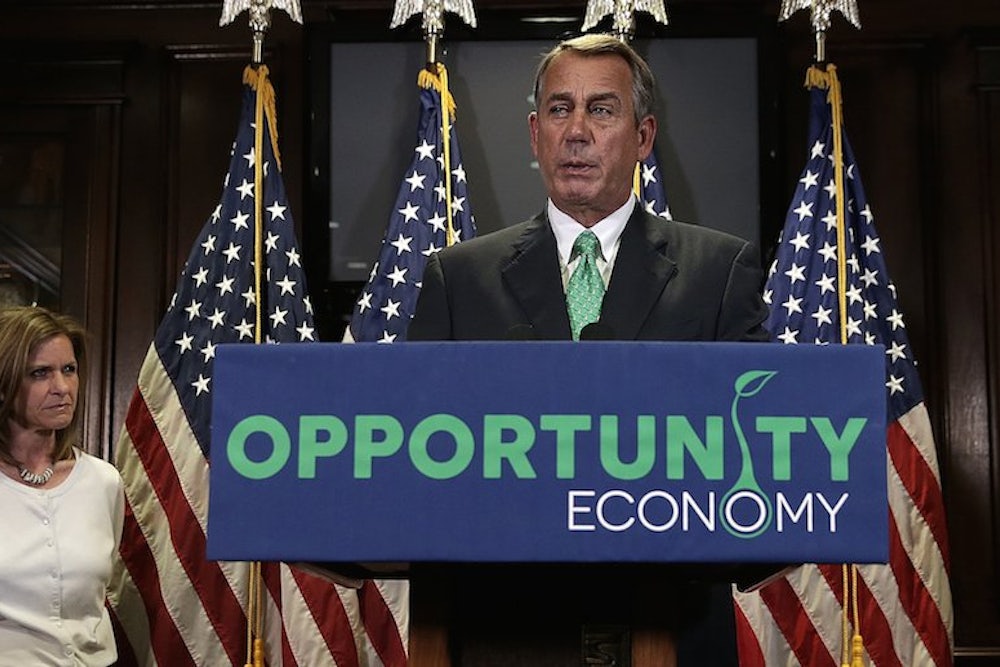In 1973, President Richard Nixon pledged to make the United States energy independent within 10 years. In the House of Representative's budget blueprint for 2016, released Tuesday, Republicans promise the same thing. The "United States is on track to become energy independent within the next 10 years," writes House Budget Committee Chairman Tom Price.
Like all the promises of energy independence that came before it, the GOP’s vision is just as likely to fail. But it gives Republicans an excuse to reverse the little progress the U.S. has made on climate change under the Obama Administration. Their main target is President Barack Obama’s carbon pollution regulations on new and existing power plants. It describes the Environmental Protection Agency’s regulations on coal as “[u]nfairly targeting the coal industry with costly and unachievable regulations will increase energy prices,” claiming it will cost consumers and industries. And it swears against a tax on carbon pollution. “This resolution also rejects the idea of instituting a carbon tax in the United States, which some have offered as a new source of revenue. Such a plan would damage the economy, cost jobs, and raise prices on American consumers.”
The GOP proposes “eliminating waste” in federal spending by cutting funds to clean energy programs and climate change research. It slashes all federal spending on clean energy development beyond allocating some funds for research, while leaving subsidies for fossil fuels in place. And it calls for the Department of Defense and the Central Intelligence Agency to stop studying climate change. According to House Republicans, study of the climate's impact on national security fits under "examples of areas where there should be room to cut waste, eliminate redundancies, and end the abuse or misuse of taxpayer dollars." But this is hardly a misuse of funds, considering that the Pentagon warned as far back as the George W. Bush administration that climate change is a threat to national security. The GOP simply wants the Pentagon to ignore the problem.
House Republicans make no effort to discuss the economic benefits from either preparing for, or taking action on, climate change. Nor do they mention the new jobs being created in the clean energy industry, which has overtaken job growth in the coal industry. The GOP's plan to open up even more drilling for coal, oil, and gas won't make a dent in energy prices on a global market, but rooftop solar and energy efficiency upgrades can actually help consumers save money. Even though energy independence is a political myth, Republicans give little credit to the policies that help move the U.S. in that direction.
